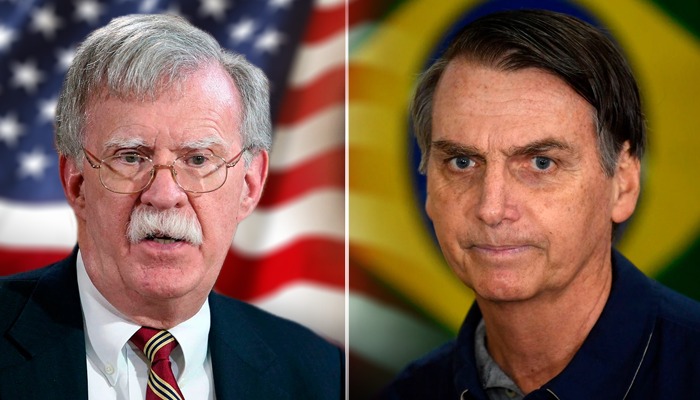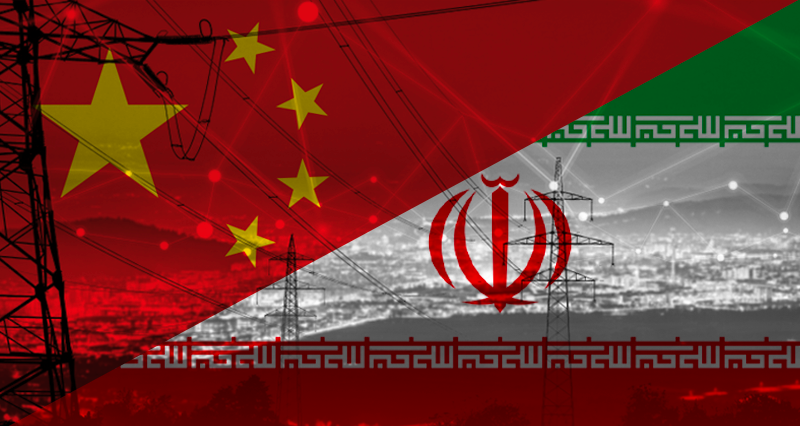Jair Bolsonaro’s victory in Brazil and US President Donald Trump’s rush to congratulate the like-minded President-elect, has triggered a debate on the rise of “Trumpism” in Latin American politics. Bolsonaro’s win is important at least for two reasons: first, Brazil is the largest economy in South America and the eighth largest in the world; and second, for the first time in decades, Latin America’s three leading economies are now controlled by far right (Brazil) and right-wing politicians (Argentina and Chile). This could be the ‘beginning of the end’ of the golden age of left-wing politics in South America, entailing significant consequences.
Dubbed the “Brazilian Trump” and the “Donald Trump of the Tropics”, Jair Bolsonaro shares similar values and characteristics with the US president: They both have five children from three marriages; both have strong nativist and xenophobic convictions; both have about 80 percent support from evangelicals; and both have unfavorable views of women, the LGBTQ community, non-white immigrants, international treaties and multilateral agreements among many other issues.
Enjoyed a wide-ranging, very productive discussion w/ Brazil’s President-elect Bolsonaro & his national security team. I extended an invitation from Pres. Trump for @JairBolsonaro to visit the US. We look forward to a dynamic partnership w/ Brazil. pic.twitter.com/KrGF7mYDaA
— John Bolton (@AmbJohnBolton) 29 de novembro de 2018
The politicians share similar worldviews and enjoy the same political base: like Trump, Bolsonaro’s political views have been described as nationalist and populist in nature, as he advocates for policies affiliated with the far-right. Bolsonaro is an anti-establishment politician whose voters are usually male, white, evangelical Christians, pro-life and pro-gun. Like the current US president, Bolsonaro opposes most forms of gun control legislation, arguing that law-abiding citizens have the right to self-defense, thus, proliferating more guns is an answer to homicide and other cases of gun-related violence.
Nativism and xenophobia: Blame immigrants for all the problems
Similar to Trump, the three right-wing Latin American leaders have, on many occasions, made xenophobic and even racist remarks. Trump has complained about immigrants coming from African countries, using pejorative terms to describe them and their counties of origin. Likewise, Brazil’s president-elect and his like-minded counterparts, Argentina’s Mauricio Macri and Chile’s Sebastián Piñera, have expressed anti-immigrant sentiments.
Mr. Trump has accused Mexican immigrants of being rapists, drug traffickers and criminals and Brazil’s Bolsonaro has accused Haitian refugees in Brazil of bringing diseases to the country, a phrase borrowed from Trump’s lexicon that Haitians coming to the US “all have AIDS.” Similarly, Chile’s Piñera has blamed Haitian and Venezuelan migrants for drug trafficking and organized crime.
Via IG @DesignAtivista#Bolsonaro #Trump pic.twitter.com/36gdDrRTSA
— Richard Sauveur (@RichardSauveur) 29 de novembro de 2018
Inspired by Trump’s anti-immigrant rhetoric and actions, Argentina’s Macri issued a presidential directive, aiming to prevent immigrants from entering Argentina, which makes it easier to deport illegal immigrants, mostly from neighboring Bolivia, Peru, and Paraguay. Macri said in 2017 that Argentina cannot allow criminals to keep choosing Argentina as a place to commit offenses.
Pro-military stance
Trump has praised US border patrol and Immigration and Customs Enforcement (ICE) officers for being tough with immigrants and illegal aliens. Bolsonaro too has spoken of a heavy-handed military approach to fight immigrants and drug dealers and has promised to reinstate security in the country. Bolsonaro, himself a former army captain, has gone as far as to commend the use of torture and murder of left-wing activists under Brazil’s former military dictatorship.
Build the wall!
During his presidential campaign, Mr. Trump, among other things, promised to build “a big beautiful wall” along the US-Mexican border. In Latin America too, newfound nativism and xenophobic sentiments have stoked a desire for strong national borders. Bolsonaro has proposed constructing “a very high wall” along with Brazil’s southwestern border with Paraguay in order to prevent immigrants and smugglers from entering the country. Some Argentine politicians including legislator Alfredo Olmedo, have proposed building a wall to keep immigrants from entering Argentina, imitating Trump’s proposal.
Aquele casal que todo mundo odeia.
Made in Maracanaú-CE #Trumpnaro #Bolsonaro #Trump pic.twitter.com/SLtTsE8LlI
— Jônatas Faustino (@JonatasFaustino) 30 de novembro de 2018
A U-turn in foreign policy
Bolsonaro, who is scheduled to be sworn in as president on the 1st of January next year, is planning to reverse the foreign policy orientation of former left-leaning governments in Brazil. During his 2018 presidential campaign, Bolsonaro said he would make significant changes to Brazil’s foreign relations, saying that the “Itamaraty (Brazil’s Ministry of Foreign Affairs) needs to be in service of the values that were always associated with the Brazilian people.”
Bolsonaro has indicated that Brazil should distance itself from Iran, sever ties with Venezuela, be wary of China’s “ideological agenda” and closely align with Washington and Tel Aviv. During his election campaign, he said that the country should stop attacking democracies such as the United States and Israel. Bolsonaro has repeatedly praised Trump and his foreign policy. Along with other Latin American countries, Brazil has traditionally had a sympathetic approach toward Palestinians. However, this pro-Palestinian stance is coming to an end and Bolsonaro has announced that his first foreign visit as president will be to Israel, even promising to relocate Brazil’s embassy in Israel to Jerusalem. He opposes Palestinian statehood, saying: “You don’t negotiate with terrorists.”
Zwist im Kabinett #Bolsonaro. #Trump-Fan Bolsonaro eckt mit Idee an,die Botschaft nach #Jerusalem zu verlegen. Die #Agrarlobby und #Militärs sind dagegen. Das Agrarbusiness von #Brasilien exportiert in arabische Länder im Wert von 13,5Mrd. US$. Handel mit #Israel fast inexistent. pic.twitter.com/Jy1CCI3UrM
— Mario Schenk (@Ma_Rio_Schenk) 29 de novembro de 2018
The expected sweeping changes in Brazil’s foreign policy under new Itamaraty guidelines will have tremendous geopolitical impact as the world’s eighth largest economy is likely going to distance itself from international and regional organizations such as Mercosur and the Non-Aligned Movement and take a different path in various global groupings including the G-7, G-20 and South-South cooperation. At the same time, the ties between the United States and Brazil are expected to immensely improve under Bolsonaro’s rule. The Trumpification of Brazil’s politics will deeply impact US-Latin American relations.

















Leave a Reply